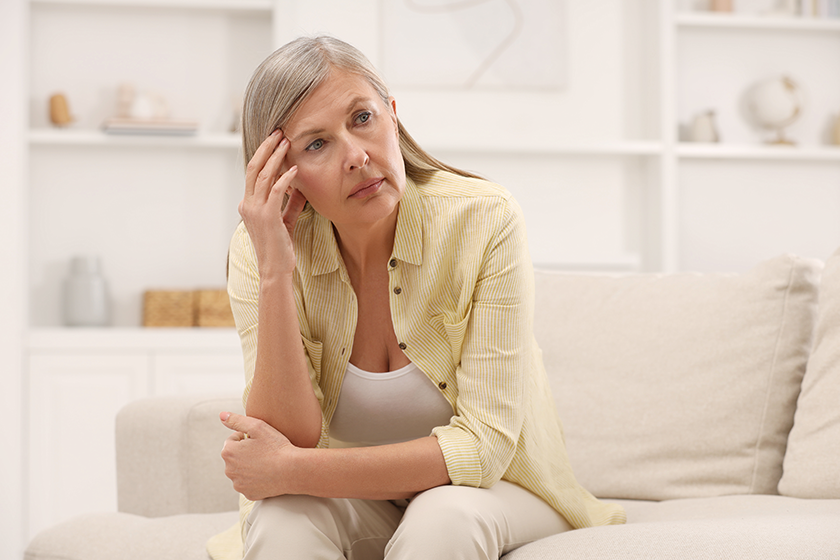Retirement is often seen as a time for relaxation and enjoyment, but for many, it can also bring feelings of sadness and loss. Adjusting to a new lifestyle without the structure of a daily job can lead to depression after retirement. This is a common experience for many individuals as they transition from a life of regular work to one with more free time. Recognizing the signs of this emotional shift and finding effective ways to cope can help improve the quality of life during these years.
Establish a Daily Routine to Maintain Structure
Maintaining a structured daily routine can help reduce feelings of aimlessness and anxiety. When a person retires, the lack of a set schedule can make days feel long and empty. Creating a daily plan that includes specific activities, like meal times, exercise and social activities and events, can provide a sense of purpose.
Having a routine helps keep the mind engaged and focused, making the adjustment to retirement smoother and less stressful. It also helps create a sense of normalcy and predictability, which can be comforting.
Stay Physically Active to Boost Mental Health
Physical activity is not only good for the body but also critical for mental well-being. Engaging in regular exercise has been shown to reduce symptoms of depression after retirement. Activities such as walking, swimming or joining a fitness class can help release endorphins, the body’s natural mood lifters.
Staying active also helps maintain energy levels and improves sleep quality, which are both important for overall mental health and wellness. Finding an enjoyable form of exercise can turn it into a positive, daily habit that benefits both the mind and body.
Engage in Social Activities to Prevent Isolation
Social connections play a significant role in mental health, especially after retirement. Many retirees experience loneliness when they no longer have regular interactions with colleagues. Joining clubs, attending community events or simply spending time with friends and family can help combat feelings of isolation.
Social activities provide opportunities to meet new people and build friendships, which are essential for emotional well-being. Staying connected with others also offers support and can make it easier to share feelings and experiences with those who understand.
Pursue New Hobbies to Discover Fresh Interests
Retirement presents an excellent opportunity to explore new hobbies and interests. Engaging in new activities can stimulate the mind and give a sense of achievement. Whether it’s learning a new language, taking up painting or gardening, finding a hobby that brings joy and satisfaction can help alleviate depression after retirement.
Hobbies also offer a way to stay mentally active and engaged, providing a sense of purpose and fulfillment that can help replace the routine of a working life.
Seek Professional Help for Persistent Depression Symptoms
If feelings of sadness and hopelessness persist, it may be helpful to seek professional help. Therapists and counselors can provide support and strategies for managing depression after retirement. Sometimes, just talking to a professional can help clarify emotions and bring relief.
Therapy can offer new perspectives and coping mechanisms to help navigate this life transition. It’s important to remember that seeking help is a sign of strength, not weakness and can lead to significant improvements in mental health.
Practice Mindfulness and Meditation for Emotional Well-being
Mindfulness and meditation can be effective tools for managing emotions and reducing stress. These practices involve focusing on the present moment, which can help break the cycle of negative thoughts that often accompany depression after retirement.
Regular mindfulness practices, such as meditation or deep breathing exercises, can help calm the mind and give a sense of peace. These techniques are easy to learn and can be practiced anywhere, making them accessible tools for promoting emotional well-being.
Join Support Groups to Share Experiences and Coping Strategies
Joining a support group can create a sense of community and understanding. Sharing experiences with others who are going through similar situations can be comforting and empowering.
Support groups offer a platform to discuss challenges and share coping strategies, which can be very helpful in dealing with depression after retirement. They come with a safe space to express emotions and gain insights from others, fostering a sense of belonging and reducing feelings of isolation.
Revive Your Spirit with Retirement Community and Senior Health and Fitness Programs
Depression after retirement can be a challenge, but with the right support, it’s possible to find joy and fulfillment again. We offer a variety of senior living programs tailored to keep our residents physically active and mentally engaged. These programs give opportunities for exercise, social interaction and learning new skills, which are all vital for maintaining a healthy and happy life after retirement. Join us to discover a retirement community that supports and uplifts each other, making retirement a time of growth and joy.







